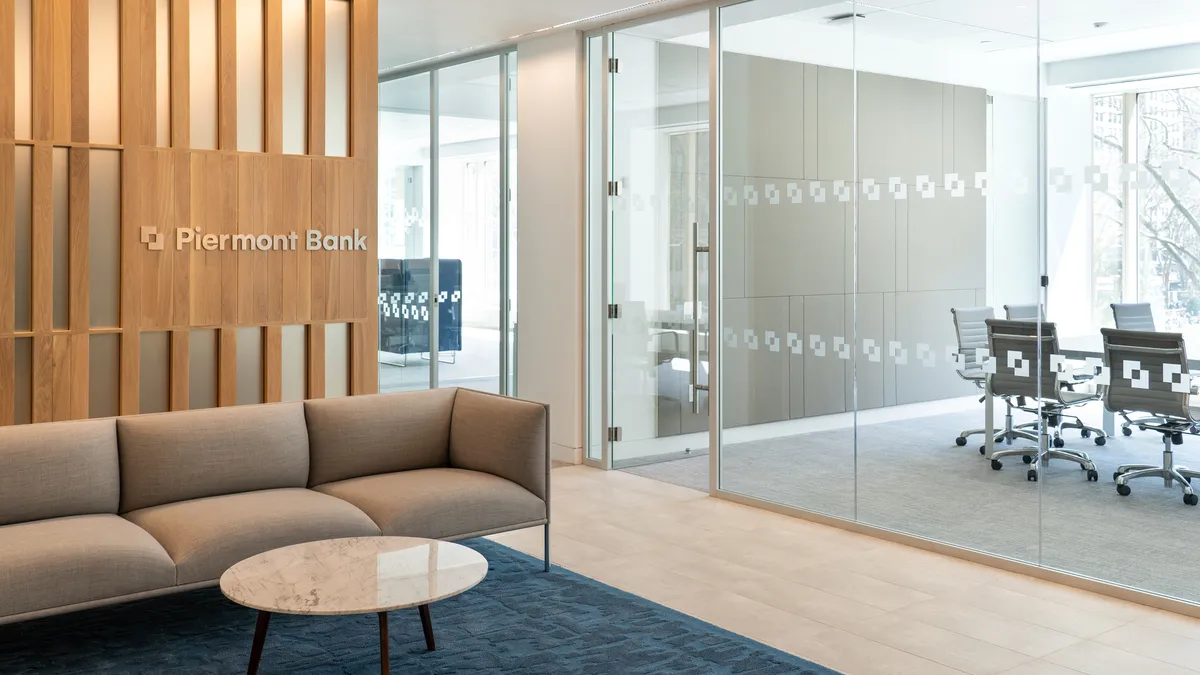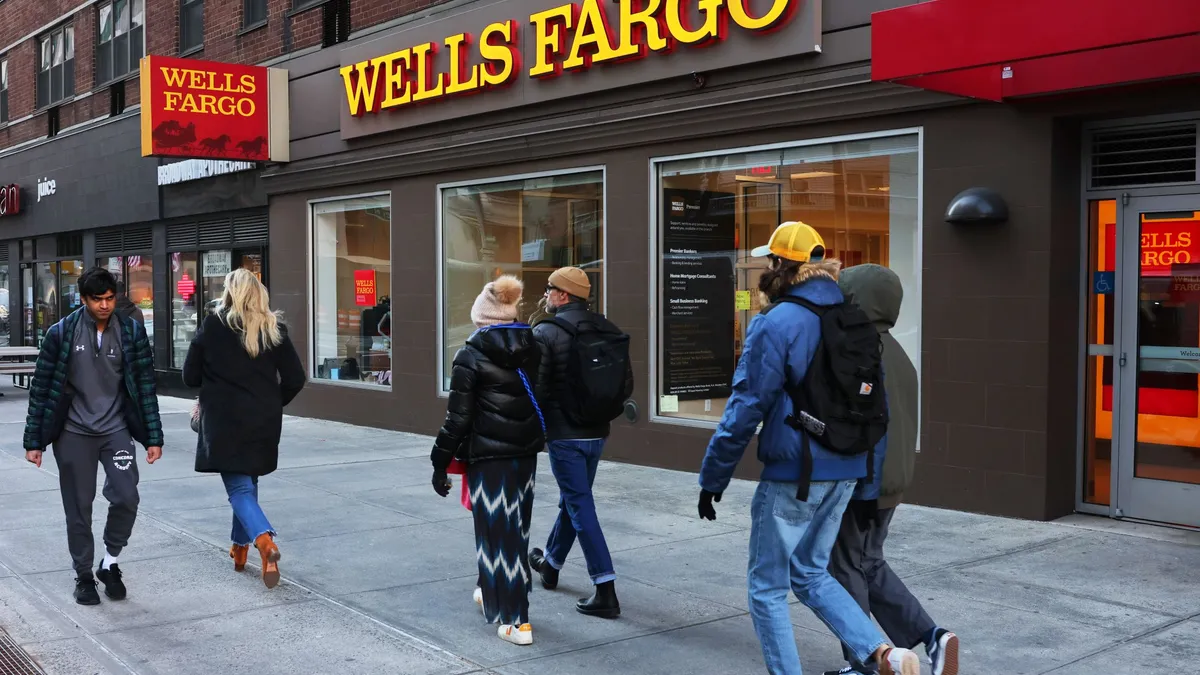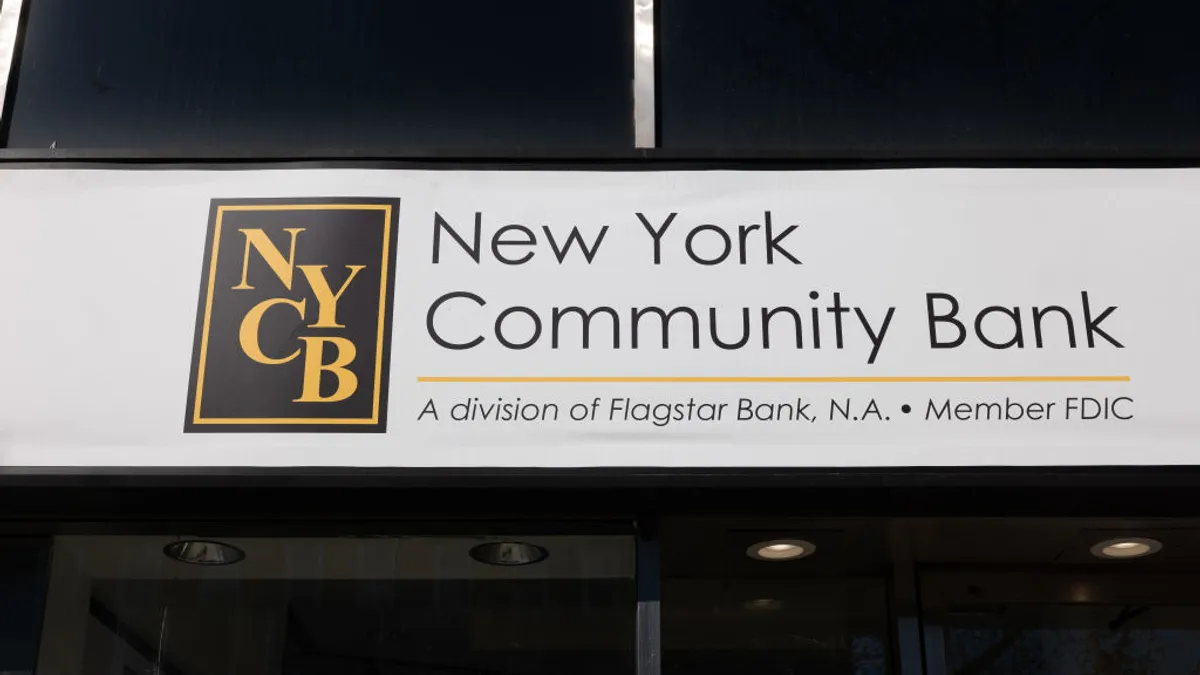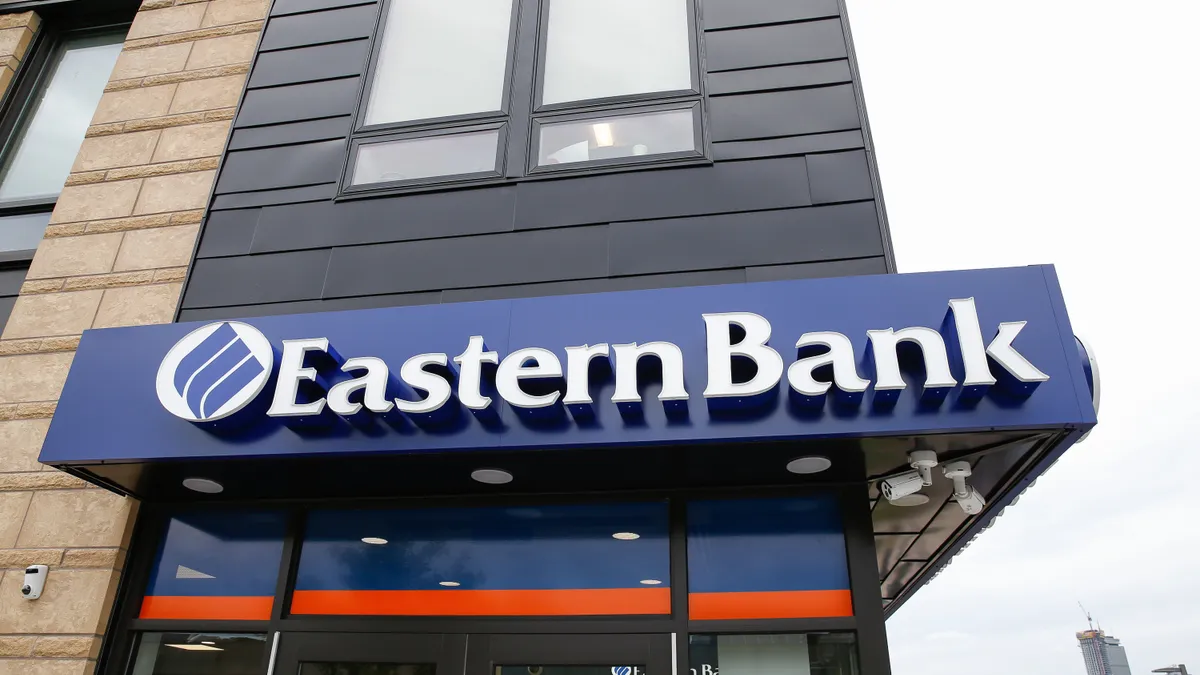When Triad Business Bank opened March 16, the country was just beginning to get a glimpse of how the coronavirus pandemic would disrupt the economy and everyday life in America.
When the North Carolina-based bank received its charter in March, it became the country's newest bank, serving the area surrounding Greensboro, Winston-Salem and High Point.
"I joke with people and say it was a little like watching Harrison Ford run out of the Temple of Doom, and watching the whole thing collapse behind him," Triad Business Bank CEO Ramsey Hamadi told Banking Dive, on launching a de novo just as the economy began to unravel because of the virus.
"Very quickly, within a week, we suddenly were completely focused on the Paycheck Protection Program (PPP)," Hamadi said, referring to the Small Business Administration’s coronavirus relief package, which is aimed at helping small businesses weather the economic downturn brought on by the pandemic.
It's a difficult time to launch any business, much less a bank. But the timing comes with opportunities and challenges, industry leaders said.
"It's a great time, actually, to open a bank, because you won't have any problems. Technically, you don't have any loans on your books," Paul Schaus, president, CEO and founder of consulting firm CCG Catalyst, told Banking Dive.
The problem, Schaus said, is in attracting the necessary capital to launch a bank.
Capital requirements, which are set by regulators and vary based on market size and the bank's business plan, have spiked since the 2007-08 financial crisis, and had proved a significant hurdle for de novos before the pandemic.
Unless you have investors with deep pockets, raising capital for a de novo is a challenge even without the threat of a global recession, said Schaus, who has been involved in the creation of 19 de novos throughout his career.
Depending on their stage in the process, several de novos have already experienced the coronavirus's impact on fundraising.
Before it opened, Triad Business Bank anticipated it would raise well over $55 million, or be in a position where it would cap funding at that amount, Hamadi said.
The bank had surpassed its minimum requirement of $48 million in early February, Hamadi said. "We had been oversubscribed," he said.
The bank was in the midst of an active capital campaign before the outbreak brought the raise to a halt. It ended up raising $52 million before opening its doors.
"We noticed that capital markets impact," Hamadi said.
The pandemic has caused some earlier-stage de novos to adjust to a new economic reality that may also affect launch timelines.
Hitting the pause button
RockPoint Bank, a proposed de novo in Chattanooga, Tennessee, had to pause its $30 million equity raise
— launched in mid-February — due to the coronavirus outbreak. President and CEO Hamp Johnston told Banking Dive the bank still plans to open this year.
"There was a lot of interest in the community, and [the equity raise] got off to a really quick start, and then the world changed on all of us involved," Johnston said. "We essentially just hit the pause button. We didn't feel like it was appropriate. Folks had other priorities, we had other priorities. We understood that."
The impact of the pandemic has also slowed the $50 million capital raise at Chicago-based First Women's Bank, a startup with a focus on the women's economy.
"But we remain confident in our ability to reach our launch goal," said Marianne Markowitz, the bank's CEO who once served as acting director of the Small Business Administration under President Barack Obama. The bank is still fielding calls and receiving commitments from interested investors, Markowitz said.
The pandemic could also affect the timeline for the bank's launch, she said. The de novo filed applications with the Federal Deposit Insurance Corp. (FDIC) and the Illinois Department of Financial and Professional Regulation to become an Illinois-chartered bank in September.
"The current environment may affect the timing of our launch, but it has not diverted our focus," Markowitz told Banking Dive.
The bank has the flexibility to wait for the right conditions to open, she said.
"Because we are still 'in organization,' we are agile and able to adjust activity to conserve capital," Markowitz said. "We have limited fixed expenses, so we’re able to retain the flexibility to weather unanticipated delays."
A competitive advantage
Pandemic-related economic uncertainty will be unsettling for de novos, established banks and almost any business in the months ahead, Schaus said.
"But for people who are willing to take the risk and have the money to put up a risk, it's a great time to start a bank because you're starting with a clean portfolio," he said.
For new banks with clean balance sheets, entering the market now could give the newer financial institutions an unexpected edge.
"You have no bad loans or any companies or businesses that have any issues, because guess what? You don’t have any clients right now," Schaus said. "You're just getting opened up, which means you're going to get the gravy or the cream of the crop, because you have money to lend. But you want to be very picky about who you lend to. You want to make sure they're solid businesses, and that they have revenue and liquidity."
The current economy presents a "tremendous opportunity" for a new bank like First Women's, Markowitz said.
"As a de novo, First Women’s Bank will launch with fresh capital, no credit losses, risk-mitigated SBA lending tools — all in a less competitive market with pent-up demand for small business loans," she said.
For Triad Business Bank, which began offering PPP loans shortly after opening, the ability to provide the forgivable loans led to new account openings as some customers, dissatisfied with their former bank’s handling of the PPP process, decided to take their business elsewhere.
"We gained a lot of loyalty during that time period," Hamadi said. "The new accounts significantly enhanced the growth of our noninterest-bearing operations, the core checking accounts within the bank. Those are hard to come by, so it's been beneficial in that way."
New lenders can also benefit from an economic environment that causes established banks to operate more conservatively.
"From a competition standpoint, there's a benefit to bankers suddenly pulling back and getting more conservative with their lending," Hamadi said. "They become a lot less competitive."
In many ways, the pandemic has accelerated Triad's strategy by three to four years, Hamadi said.
"I think it's a little early to know just how far things are going to go, but having a clean balance sheet today is certainly a good place to be," he said.
'The Missing Middle'
For New York City-based Piermont Bank, which received its banking charter in July and began opening up accounts in September, the mission was always to serve what CEO Wendy Cai-Lee calls "the missing middle."
"Many banks have gone quite large, even the regional banks," Cai-Lee said. "And then you have the really small ones that really don't have the true commercial lending capabilities, products and knowledge. And you have the larger ones where it’s really difficult for them to have that one-on-one relationship."
The current crisis has validated Piermont's goal to serve small to medium-sized businesses with borrowing needs between $1 million and $10 million, Cai-Lee said.
Piermont's clean balance sheet enables it to be an active lender at a time when others are forced to pull back, she said.
"There are quite a number of banks out there that have stopped or slowed down new lending," she said. "But with us, because we have a very clean balance sheet, strong capital position and cash position, we are one of the few out there actively doing new lending. It's been tremendously helpful to Piermont, as a new player, to build up assets."
The challenge for Piermont will be in how quickly it can sustainably scale to address the growing demand for small-business loans, Cai-Lee said.
Johnston said the pandemic could help more small businesses see the value of local community banks.
"RockPoint Bank's strategy to serve a small to medium business is very much different than Bank of America's," he said. "There are a lot of good banks and a lot of good bankers, but for customers figuring out what best suits them, I think they'll understand that a little bit better now."




















